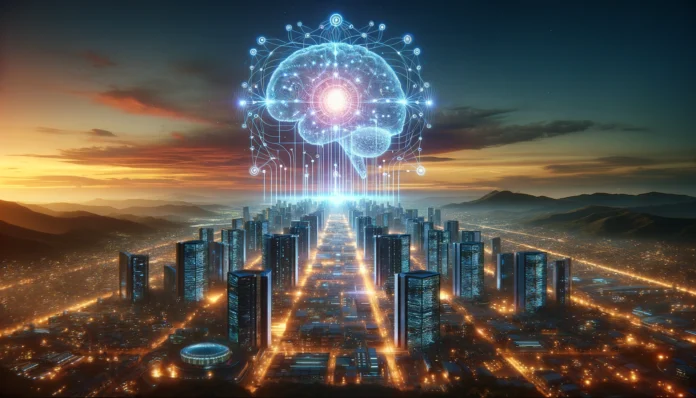In the vast landscape of technological advancement, two fields stand at the forefront of innovation: artificial intelligence (AI) and quantum computing. While each has made remarkable strides independently, their convergence holds the promise of unlocking unprecedented capabilities and revolutionizing the way we solve complex problems.
At the heart of this convergence lies the potential for quantum computing to exponentially enhance the computational power available to AI systems. Traditional computers, based on classical physics principles, are limited by the binary nature of bits, which can only exist in one of two states: 0 or 1. In contrast, quantum computers leverage the principles of quantum mechanics, allowing quantum bits, or qubits, to exist in multiple states simultaneously. This inherent parallelism enables quantum computers to perform certain calculations exponentially faster than their classical counterparts.
For AI, which relies heavily on complex calculations and pattern recognition, the potential implications of quantum computing are profound. Tasks that are currently beyond the reach of classical computers, such as simulating molecular structures for drug discovery or optimizing complex neural networks, could become feasible with the advent of quantum computing.
Imagine an AI system that can analyze vast datasets in real-time, uncovering hidden patterns and insights with unprecedented speed and accuracy. With the computational power of quantum computing at its disposal, AI could revolutionize fields ranging from healthcare and finance to manufacturing and logistics.
Furthermore, the marriage of AI and quantum computing opens the door to new frontiers of research and innovation. Quantum machine learning, a burgeoning field at the intersection of quantum computing and AI, explores how quantum algorithms can enhance traditional machine learning techniques. By leveraging the unique properties of quantum systems, such as superposition and entanglement, researchers aim to develop more efficient algorithms capable of tackling complex problems with greater efficiency.
However, the journey towards fully harnessing the potential of quantum computing for AI is not without its challenges. Quantum systems are notoriously fragile, susceptible to noise and errors that can compromise the integrity of computations. Overcoming these technical hurdles requires not only advances in hardware but also the development of robust error-correction techniques and algorithms tailored to the unique characteristics of quantum computers.
Moreover, the field of quantum computing itself is still in its infancy, with many fundamental questions remaining unanswered. As researchers work to build more powerful quantum computers and refine quantum algorithms, the full extent of their capabilities and limitations remains to be seen.
Despite these challenges, the promise of quantum leaps in AI powered by quantum computing is too compelling to ignore. As researchers and engineers continue to push the boundaries of what is possible, we stand on the brink of a new era of discovery and innovation. From unraveling the mysteries of the universe to revolutionizing industries and transforming society, the potential of AI and quantum computing knows no bounds.





